Can Your HVAC Filter LA Wildfire Smoke?
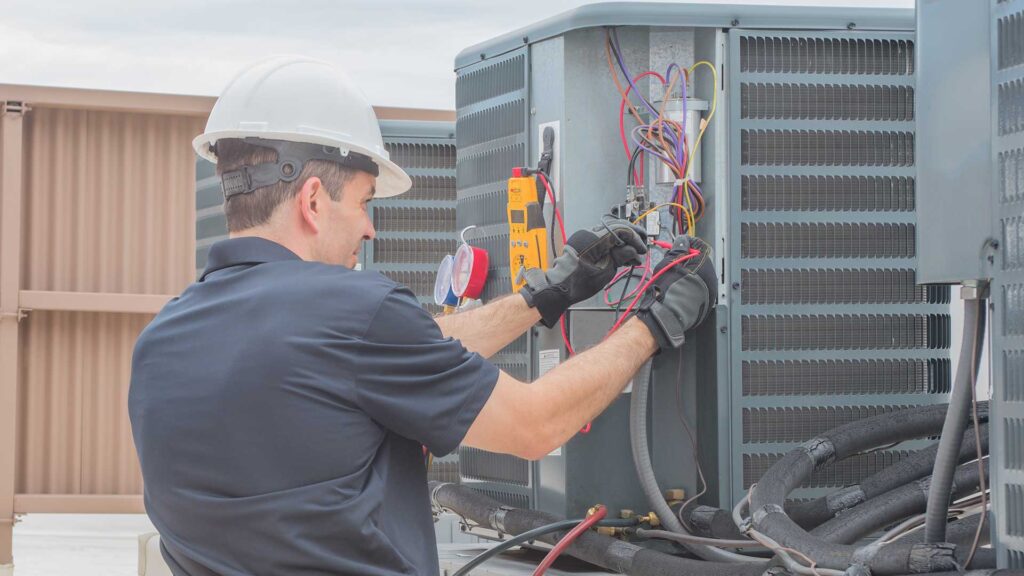
Wildfire season hits Los Angeles hard every year. The smoke rolls in thick, and you’re stuck wondering—does your HVAC system actually help with this mess? Here’s the thing: your filter does catch some smoke particles, but it’s more complicated than you might think. Most standard filters just weren’t designed for this level of chaos in Los Angeles homes and businesses. Standard Filters vs. Wildfire Smoke Your basic HVAC filter? It’s pretty decent for dust and pet hair. But wildfire smoke that’s a whole different animal. Smoke particles are incredibly tiny. We’re talking microscopic here. Your standard 1-inch pleated filter might catch maybe 20% of smoke particles on a good day. The rest? They just cruise right through your system and back into your house. Here’s what you’re dealing with: Smoke particles: 0.3 to 1.0 microns Standard filters: catch particles 3.0 microns and larger See the problem? MERV Ratings Matter More Than You Think MERV ratings tell you how well filters actually work. Higher numbers mean better filtration it’s that simple. For wildfire smoke, you need MERV 13 or higher. MERV 8? Forget about it. MERV 11? You’re getting warmer, but it’s still not great. MERV 13 filters catch about 85% of particles between 0.3 and 1.0 microns. That’s your smoke range right there. MERV 16 does even better, but here’s the catch—check your system first. Some units just can’t handle the thicker filters. Your Commercial Furnace Installation Los Angeles contractor can tell you exactly what MERV rating your system handles safely. When Regular Filters Just Won’t Cut It Sometimes basic upgrades aren’t enough. LA’s fire season keeps getting worse, and regular filters hit their limits pretty fast. Air purifiers help fill those gaps. Look for ones with HEPA filters they catch 99.97% of particles 0.3 microns and larger. Place them in bedrooms or main living areas where you spend the most time. Portable units work way faster than waiting for your HVAC to cycle through all the air in your house. During heavy smoke days, speed really matters. Emergency Mode: When Smoke Gets Thick When the air quality index hits “unhealthy” levels, your HVAC needs backup. First things first—close all windows and doors. Sounds obvious, but you’d be surprised how often people forget. Run your HVAC fan continuously instead of on “auto” mode. This keeps air moving through your filter non-stop. Sure, your energy bill goes up, but your lungs stay cleaner. Some people tape plastic over air vents in unused rooms. It forces more air through the main living spaces where your family hangs out. Need emergency help with your system during fire season? 24 Hour HVAC Los Angeles services stay open when smoke hits hardest. Bottom Line Your HVAC filter does help with wildfire smoke, but don’t expect miracles from standard filters. Upgrade to MERV 13 minimum, add portable air purifiers, and run your system continuously during bad air days. Your breathing will definitely thank you later.
Filtering Wildfire Smoke and Smog From Your Home
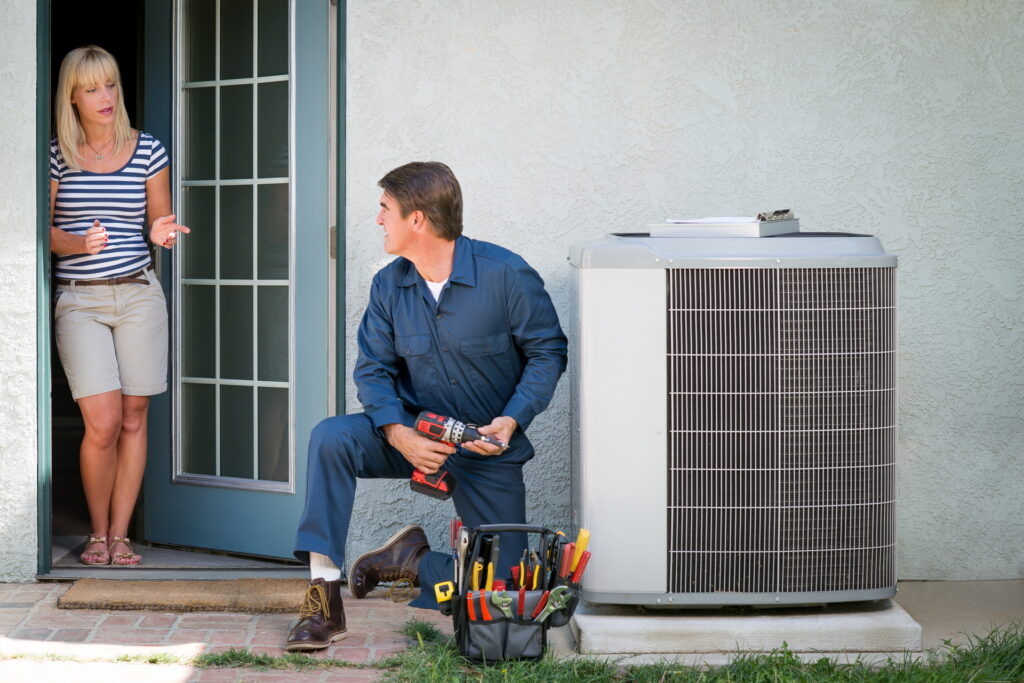
Living in Los Angeles means dealing with smoke season every year. You know how it goes those eerie orange skies, ash covering your car, and that smoky smell somehow finding its way inside your house. Nobody wants to breathe that nasty stuff indoors, especially when you’re trying to relax at home. Living in Los Angeles means dealing with smoke season every year. You know how it goes those eerie orange skies, ash covering your car, and that smoky smell somehow finding its way inside your house. Nobody wants to breathe that nasty stuff indoors, especially when you’re trying to relax at home. That’s where Heating Services Los Angeles experts come in. They ensure your HVAC and heating systems are working properly, keeping your indoor air cleaner and safer during wildfire season. Your AC System Can Help (Or Make Things Worse) Here’s what most people don’t realize: your air conditioner has a huge impact on indoor air quality. When smoke starts rolling in, you might think just closing the windows does the trick. Sorry, but it’s not that simple. Your HVAC system keeps sucking in air from outside unless you tweak the settings. Switch your thermostat to “recirculate” mode if you’ve got that option. This stops fresh outdoor air from getting into your system. Don’t have a recirculate button? No worries just set your fan to “on” instead of “auto.” This keeps air moving through your filter all the time. Speaking of filters when’s the last time you changed yours? A dirty filter during smoke season is pretty much worthless. Try to get a MERV 13 filter if you can find one. These things catch way smaller particles than those basic filters. Sometimes your system just can’t handle it. Maybe it’s getting old, or maybe something’s busted. Home AC Repair Los Angeles technicians deal with this stuff constantly when fire season hits. A struggling AC unit won’t filter air properly right when you need it most. Extra Steps for Better Protection Air purifiers are awesome for bedrooms and main living spaces. Look for ones with HEPA filters. Yeah, they cost more, but they’re totally worth it when the air quality goes to hell. Here’s a smart move: create a clean room. Pick one bedroom or your living room. Stuff towels around door gaps to seal them up. Run an air purifier in there. Keep everything closed tight. Now you’ve got a safe spot when the smoke gets really bad. Don’t forget to check your home for air leaks. Smoke’s sneaky it’ll find tiny cracks around windows, doors, and vents. Some weather stripping can make a big difference. What About Your Heater? Fire season sometimes overlaps with cooler weather, right? So your heating system needs some love too. Gas furnaces and heat pumps suck in outdoor air just like AC units do. Same deal applies use that recirculate mode and swap out filters regularly. Heating Services Los Angeles pros always say to get your system checked before fire season kicks off. A well-maintained heater filters air better and doesn’t waste energy. And hey, skip the fireplace or wood stove when it’s smoky outside. Adding more particles to your indoor air kind of defeats the whole point. Keep Tabs on Air Quality Download an air quality app AirNow and Purple Air show what’s happening in real-time around your area. When those numbers creep above 150, time to take things seriously. Don’t just trust your nose either. Sometimes you can smell smoke, sometimes you can’t. But those tiny particles that mess with your health? You can’t always smell those. Bottom Line Protecting your family from smoke takes some planning and decent equipment. Your HVAC system’s more important than you probably thought. Keep those filters fresh, use the right settings, and don’t ignore red flags that your system needs professional help.
Why a Heat Pump is Perfect for LA’s Mild Climate?
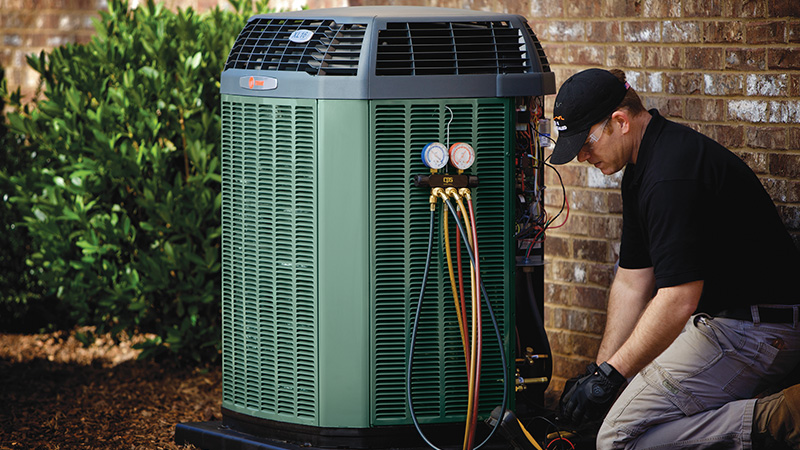
LA’s weather is basically perfect for heat pumps. You get those mild winters and warm summers that make these systems shine. The climate here is exactly what heat pumps were made for. Most people think heat pumps only work well in freezing cold places. That’s actually backwards. They’re incredible in Los Angeles because the city rarely gets those brutal freezing temperatures that make heat pumps struggle. Why LA’s Climate is Perfect Here’s how heat pumps work: they pull warmth from outside air. Even when it feels chilly to you, there’s still plenty of heat energy in the air. LA winters usually stay above 40 degrees, which means your heat pump doesn’t have to work hard at all. When temperatures drop below 30 degrees, heat pumps start struggling. They need backup heating systems to keep up. But here’s the thing LA almost never hits those lows. You might see 35 degrees on a really cold January morning, but that’s about as bad as it gets. Your electric bills stay way lower because heat pumps move heat instead of creating it from scratch. Gas furnaces have to burn fuel to make heat. Heat pumps just shuffle existing heat around, which is much more efficient. Summer Cooling Benefits Summer is where heat pumps really show off in LA. They work just like regular air conditioners but use less energy doing it. When it’s 85 degrees outside—pretty typical for July—your heat pump cools your house without breaking a sweat. The ocean keeps LA temperatures from getting crazy hot like other places. Phoenix hits 115 degrees and air conditioners work overtime. LA peaks around 90 most days, and your heat pump handles that easily. You’ll get consistent cooling all season long. No hot spots, no weird temperature swings throughout the day. Just steady, reliable comfort. Energy Savings Add Up Heat pumps can cut your heating costs by 50% compared to gas furnaces. For cooling, they use about 30% less electricity than older AC units. That’s real money back in your pocket. LA has some pretty expensive electricity rates, so every bit of savings helps. A good heat pump typically pays for itself within 5-7 years through lower utility bills alone. Many LA residents can get rebates too. The city wants people using efficient heating and cooling systems. Check with your HVAC Installer Los Angeles about what rebate programs are available right now. Installation Considerations Your home might need some electrical upgrades first. Heat pumps run on electricity, not gas like furnaces. Most HVAC Installers Los Angeles can handle the electrical work themselves or coordinate with electricians. But here’s good news—your ductwork usually stays the same. Heat pumps connect to existing ducts in most homes. Installation typically takes just 1-2 days. Mini-split heat pumps are great for homes without ducts. They mount right on your walls and don’t need any ductwork at all. Year Round Comfort One system handles both heating and cooling. No more switching between your furnace and AC or dealing with two different systems. Your heat pump automatically adjusts based on whatever you set your thermostat to. Maintenance gets simpler too. One system means one service call per year instead of two separate tune-ups for different equipment. Final Thoughts LA’s mild climate makes heat pumps a really smart choice. You’ll save money, use less energy, and stay comfortable all year long. The weather here practically demands this technology it’d be silly not to take advantage of it.
Why Does Thermostat Placement Matters in Your Office?
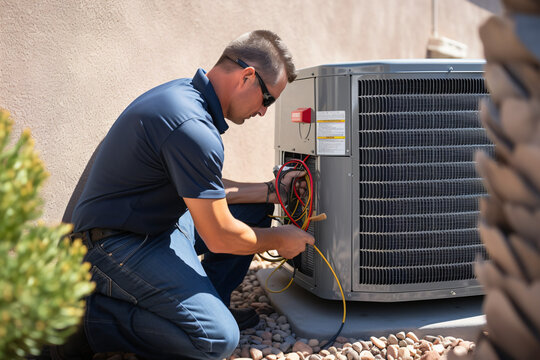
You might think your Los Angeles office thermostat just needs to be somewhere on the wall. But where you put it can make or break your team’s comfort and your energy bills. Direct Sunlight Creates Problems Thermostats hate being next to windows. The afternoon sun tricks them into thinking the whole office is blazing hot. Your AC kicks into overdrive while half your team sits there shivering. East-facing walls are particularly bad. That morning sun hits hard and confuses the sensor for hours. Your system starts working harder before most people even arrive. Stay Away from Heat Sources Placing thermostats near copiers, printers, or coffee machines spells trouble. These devices pump out heat all day long. The thermostat reads these hot spots and thinks the entire space needs cooling. Kitchen areas are equally problematic. Microwaves, refrigerators, and water heaters create temperature fluctuations that throw off readings completely. Hallways Beat Private Offices Central hallways give you the most accurate temperature readings. Air circulates better there than in closed-off spaces. The sensor picks up the true feel of your main work areas. Private offices with doors create their own climate zones. A thermostat tucked away in the corner office won’t know what’s happening in the open workspace where most people spend their time. Height Makes a Difference Mount your thermostat about five feet off the ground. This matches where people actually feel temperature changes. Too high and you’re measuring hot air that rises. Too low and you’re missing the real comfort zone. Avoid spots right above or below air vents. The constant airflow gives false readings that don’t reflect what employees actually experience at their desks. Dead Air Zones Cause Issues Some wall spots just don’t get good airflow. Behind doors, in corners, or near large furniture pieces create pockets of stagnant air. Your thermostat sits there measuring air that never moves while the rest of the office swings between hot and cold. Look for spots with gentle, consistent air movement. Not directly in a draft, but where air naturally circulates throughout the day. Multiple Zones Need Multiple Sensors Large offices benefit from zone systems with several thermostats. Different areas face different challenges. The sunny side needs different treatment than the shaded side. When your current system stops working properly, commercial thermostat replacement Los Angeles services can help design better placement for new units. Smart placement saves money from day one. Emergency Situations Sometimes thermostats fail completely outside business hours. 24 hour HVAC Los Angeles technicians can restore comfort quickly when placement issues cause system overload and breakdowns. Final Words Getting thermostat placement right isn’t complicated, but it makes a huge difference. Keep sensors away from heat sources and direct sun. Choose central locations with good airflow. Your team stays comfortable and your energy bills stay reasonable. Small placement decisions create big results.
Why LA Homes Are Perfect for an All-Electric Heat Pump
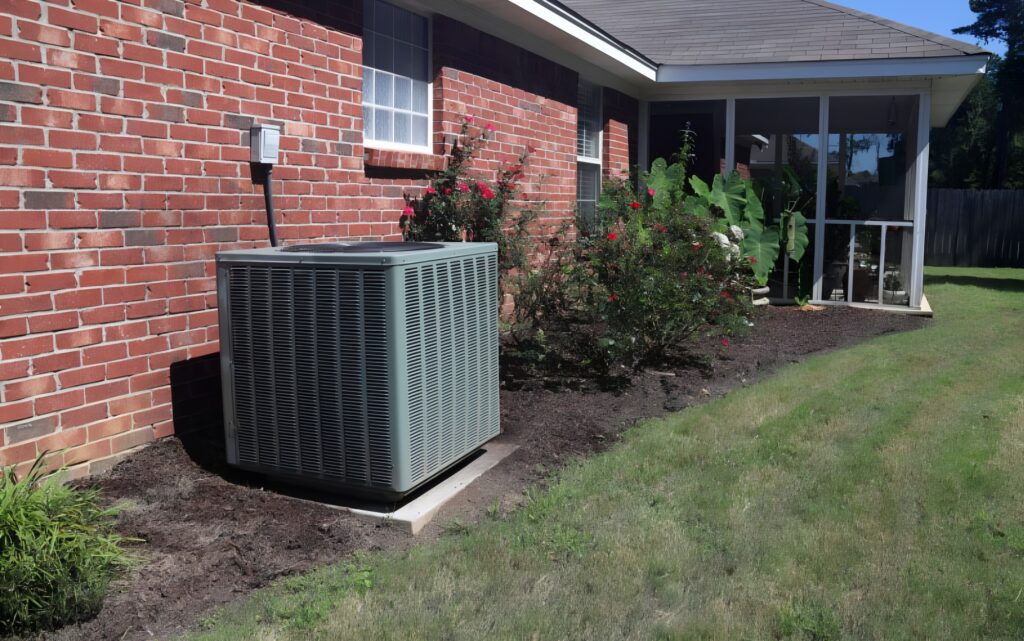
The weather in Los Angeles is moderate all year. This makes heat pumps work better here than they do in most other places. You can save money and energy while keeping your house pleasant. The Weather Works in Your Favor Moderate temperatures are great for heat pumps. They get warmth from the outside air, even when it feels chilly to you. Most heat pumps have trouble when the temperature drops below 25 degrees. They have to put forth more effort and use backup heating. But frigid weather doesn’t happen very often in LA. In the winter, the lows are usually between 45 and 50 degrees. This implies that your heat pump works at its best virtually all year. No need for extra heating. There are no energy increases during cold spells. Bills for Energy Are Lower All Year With a heat pump, you can count on your utility bill. Gas prices go up and down, but the price of electricity stays the same. Instead of making heat, heat pumps move it. This consumes roughly 65% less energy than electric heaters. You will probably save money even when you compare it to gas heating. The same goes for cooling in the summer. The mechanism automatically goes back to pulling heat out of your home. One system takes care of both heating and cooling. Don’t Stand in Line for Gas A lot of communities in LA have old gas lines. Old pipes might cause service outages or safety issues in some places. You don’t have to worry about that anymore if you go all-electric. You rely on the electrical grid, which is usually more stable. You also don’t have to pay the monthly gas hookup cost. A lot of new development doesn’t even have gas pipes. This cuts down on installation costs by thousands. If you move from gas heating to electric heating, your home can no longer have gas service. Rebates Help You Switch Not Too Expensive California gives money back for installing heat pumps. LADWP gives their customers extra reasons to choose them. These programs might help you pay for a lot of your initial fees. HVAC Financing Los Angeles programs also let you pay for things over time. A lot of contractors let you pay in installments with cheap interest rates. Federal tax credits help you save even more. You might be able to claim back 30% of the cost of installation on your taxes. Great for Business Buildings Too HVAC for businesses Heat pump technology works well with Commercial HVAC Los Angeles systems. Consistent temperatures and fewer operating costs are good for office buildings and stores. Heat recovery systems can be used in bigger structures. These take heat from one place and use it to warm another. This works best in LA’s warm weather. The Installation Goes Off Without a Hitch Most homes in LA already have the electrical service that heat pumps need. Panel upgrades may be needed in older homes, although this is normal. The ductwork doesn’t normally change. The contractor hooks up the new system to the old ducts. Most homes have good places for the outdoor unit to get air, so it needs space. Usually, it takes one to two days to install. Your heating and air conditioning will operate immediately away. Final Words The weather in LA is perfect for heat pumps. Mild winters mean the best performance. Steady power prices are better than gas prices that go up and down. Rebates and loans make it possible to switch. Your bills stay low, and your home stays pleasant.
Are Ductless Mini-Splits Right for Your LA Home?
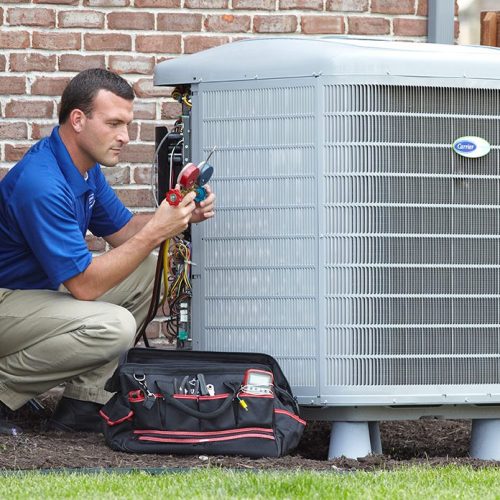
Summers are hot and winters are mild if you live in Los Angeles. When the temperature rises, your cooling system must work hard. Ductless mini-splits could be the solution you need to maintain year-round comfort in your house. Ductless Mini-Splits: What Are They? Imagine them as air conditioners without the ducting. The two primary components of a mini-split are wall-mounted indoor units and an outdoor compressor. Through tiny pipes that pass through a tiny hole in your wall, the outdoor unit is connected to indoor units. That’s all. No large ductwork is required. Indoor units can be placed in various rooms. Every one has a remote control of its own. Do you want the bedroom to be more cool than the living room? No issue. The Reasons LA Homeowners Adore Them Energy costs are rapidly declining. Compared to central air systems, mini-splits consume less electricity. There are no ducts, so they don’t lose cool air due to leaks. Ideal for older residences. Before central air became commonplace, many homes in Los Angeles were constructed. Installing ductwork damages your walls and is very expensive. Mini-splits completely avoid that mess. Silent operation. The loud parts remain outside. You won’t even be able to hear them running inside. Comfort all year long. These systems provide both cooling and heating. Although the winters in Los Angeles are mild, you will value the warmth on cold mornings. When Mini-Splits Make Sense Do you have a room that is constantly too hot or cold? Without altering your entire system, a mini-split can resolve that particular issue. Converting a garage or adding a new room? For areas without existing ductwork, mini-splits are ideal. Are you sick of arguing about the thermostat? Each member of the family has authority over their own zone. Mini-splits are frequently requested by Residential HVAC Services Los Angeles businesses in: Additions to houses Garages that have been converted Suites with master bedrooms Offices at home The Drawbacks to Take Into Account Greater initial expenses. Window units are less expensive than mini-splits. An expert is also needed for the air conditioner installation. Units mounted on walls. Some people are dissatisfied with their appearance. Some people don’t mind the contemporary look. Not ideal for cooling the entire house. Several units quickly add up if you need to cool a large house. Selecting the Appropriate Size When it comes to mini-splits, size matters. If they’re too small, they’ll run all the time. They will cycle on and off too much if they are too big. What you need depends on the size of the room. About 450–550 square feet are handled by a 12,000 BTU unit. Larger rooms require more power. Size is influenced by windows, insulation, and ceiling height. An air conditioner can determine precisely what you require. Planning Is Necessary for Installation There is no doubt about it, mini-splits require expert installation. Special equipment and expertise are needed for the refrigerant lines. The ideal locations for both indoor and outdoor units will be determined by your installer. If your city requires permits, they will also take care of those. A single-zone system installation typically takes four to six hours. Final Words Many homes in Los Angeles, particularly older ones without central air, are good candidates for mini-splits. They allow you to control individual rooms and save energy. Although it costs more up front than some alternatives, over time, the energy savings mount. Before making a choice about installation, think about your budget, i.e., what you pocket is allowing and particular cooling requirements. Mini-splits might be worth looking into if you’re sick of inconsistent temperatures or expensive energy costs.
LA HVAC Installation Do You Need a City Permit?
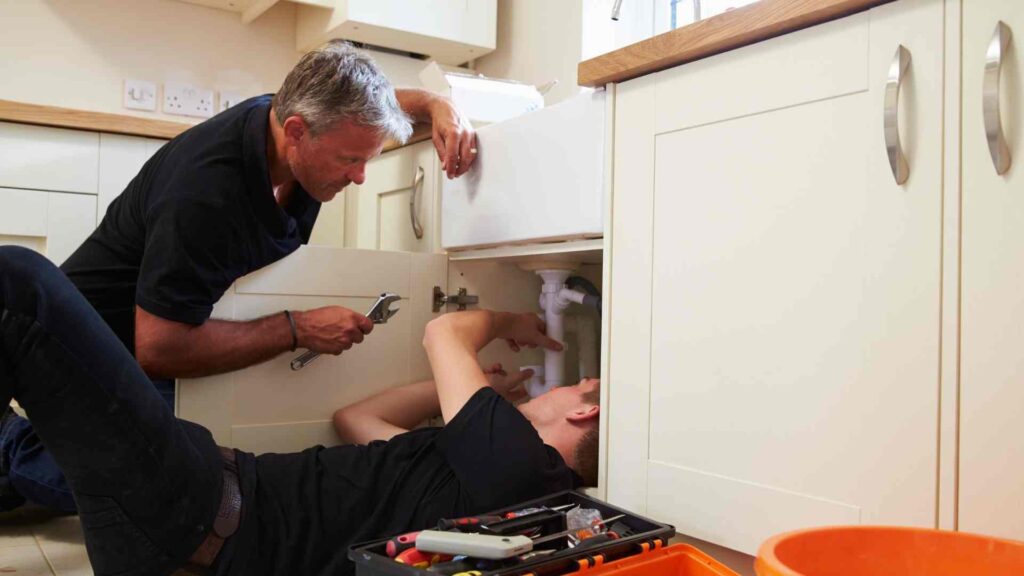
Do you want to put in or replace your heating and cooling system? You might be curious about permits. Yes, most HVAC work in Los Angeles does need permits. Let’s go over what you need to know. When You Need a Permit Most HVAC installations in LA need permits. This includes: • Putting in new systems • Taking out old units • Making big repairs to old equipment • Improving electrical connections • Adding new ductwork You need a permit to even switch out a broken air conditioner for the same model. The city wants to make sure that everything is up to code for safety. Things That Don’t Need a Permit Only small repairs are allowed: • Replacing thermostats (same voltage) • Cleaning coils • Basic tune-ups • Changing air filters If you’re just doing regular maintenance, you’re fine. But if you’re not sure, ask the building department. The Process for Getting a Permit It’s not too hard to get your permit. You’ll need: • Filled out application forms • Plans and specifications for the system • Data sheets from the equipment manufacturer • Calculations of the electrical load • Permit fees (usually between $100 and $300) Most of this paperwork should be taken care of by your HVAC Installer Los Angeles. They know what needs to be done in the area and can make things go faster. Why Permits Are Important Some people who own homes try to avoid getting permits to save money. Not a good idea. This is why: Permits keep you safe from bad installations. Inspectors ensure that the work complies with building regulations. This is crucial for insurance claims as well. Your insurance may not cover the damage if you fail to obtain the necessary permits and something goes wrong. When you sell your property, permits also increase its value. Future buyers want to be sure that the work was completed legally. A home sale may be slowed down or even destroyed by improper permits. Choosing the Right Contractor Pick contractors who automatically get permits. A good HVAC Company Near Me will include permits in their quote and take care of the paperwork. Contractors who say permits aren’t needed • Prices that seem too low (they might be skipping permits) • Not wanting to talk about the permit process Licensed HVAC Installers Los Angeles know what permits they need. They know the local codes and work with inspectors all the time. Requirements for Inspection LA usually needs two inspections: Rough check (before covering up work) Final check (after the installation is done) The inspector looks at the gas lines, electrical connections, ductwork, and overall safety. They also check to make sure that the equipment matches what’s on the permit. If an inspection fails, it will take longer and cost more. Professional installers don’t often have problems because they know what inspectors look for. Costs and Timeline Usually, it takes 1 to 2 weeks to get permission. If you pay extra for rush processing, you can get this done in a few days. The total cost of the permits depends on how big and complicated your system is. For most home jobs, plan on spending between $200 and $500. This includes fees for applications, plan reviews, and inspections. Final Thoughts In Los Angeles, you have to get permits for HVAC work. The process keeps your family safe and protects your money. Hire licensed contractors who know how to handle permits. Yes, it costs more and takes longer at first, but it’s worth it for peace of mind and to stay within the law.
How to Maintain Your New Commercial Furnace
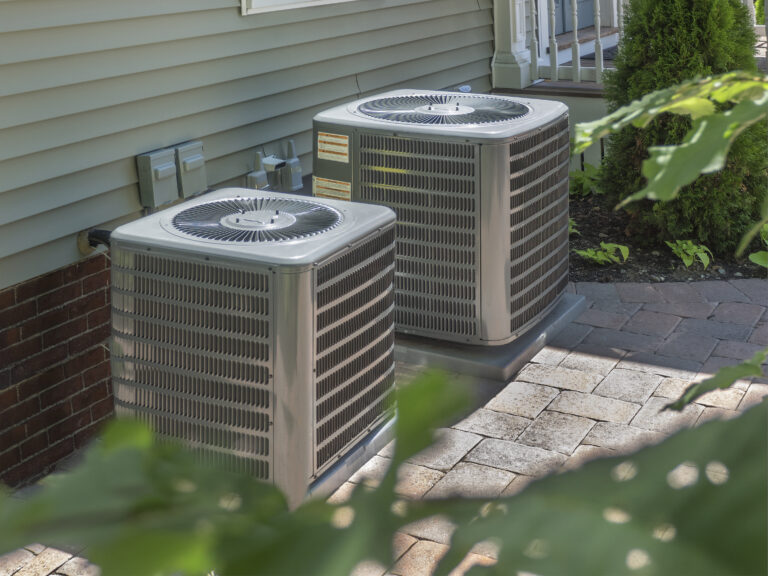
So you just got a shiny new heating system for your business? Nice. But here’s the thing getting through that Commercial Heating Installation Los Angeles process was probably the easy part. Now comes the real work: keeping that beast running smooth for years to come. Look, nobody wants to deal with a busted furnace in the middle of winter. Especially when you’ve got customers coming through the door or employees trying to get work done. The good news? A little regular care goes a long way. Change Those Filters (And Actually Remember to Do It) This one’s huge. Dirty filters are like trying to breathe through a sock – not gonna work well. Most commercial systems need new filters every month or two, but honestly, it depends on your space. Got a dusty warehouse? Maybe check monthly. Clean office building? Every couple months might be fine. Just don’t forget about them completely. Set a phone reminder or something. Keep an Eye on the Thermostat Settings Your thermostat isn’t just a “set it and forget it” deal. During business hours, you want comfort. After hours? Drop that temp down and save some cash. But here’s what trips people up – don’t crank it way down at night, then jack it back up in the morning. That actually wastes energy. Small, steady changes work better. Schedule Professional Checkups Even if everything seems fine, get a pro to look at your system twice a year. Spring and fall work well for most businesses. They’ll clean parts you can’t reach, check for weird noises, and catch problems before they become expensive headaches. Think of it like going to the dentist – boring but necessary. Listen to Your Furnace Your heating system talks to you through sounds. New rattling? That’s not normal. Weird clicking when it starts up? Worth checking out. You know your building better than anyone. When something sounds off, don’t ignore it. Commercial Heating Installation Los Angeles companies can fix small problems before they turn into big ones. Clear Space Around Your Equipment This seems obvious, but you’d be surprised. Don’t pile boxes around your furnace. Don’t use the mechanical room as storage. Your system needs room to breathe. Plus, if a repair person needs to get in there, they’ll appreciate not having to move a bunch of stuff first. Watch Your Energy Bills Big jumps in heating costs usually mean something’s wrong. Maybe the system’s working harder than it should. Maybe there’s a leak somewhere. Keep an eye on those monthly bills. If they spike without explanation, time to call in the experts. Final Thoughts Maintaining a commercial furnace isn’t rocket science. It’s more like taking care of a car – regular attention prevents big problems later. The money you spend on maintenance now? Way less than what emergency repairs cost. And your employees will thank you for keeping the place comfortable all winter long. Just remember: when in doubt, call a professional. Better safe than sorry.
Why Your LA Business Needs an HVAC Maintenance Plan
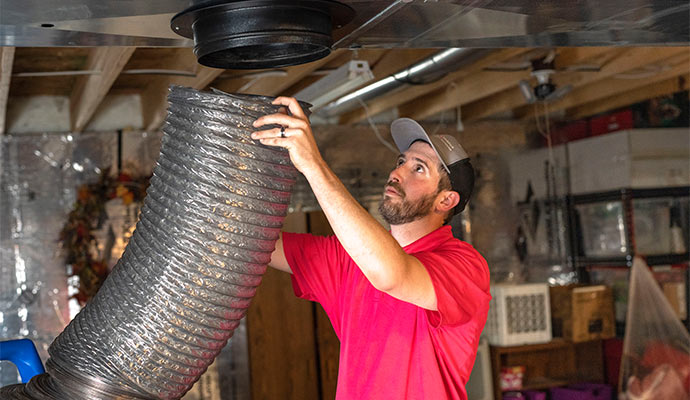
It’s Tuesday morning, 95 degrees outside, and your office AC decides to throw in the towel. Customers are sweating, employees are cranky, and productivity? Gone. This nightmare happens way too often in Los Angeles. The good news? Most HVAC disasters are totally preventable. Regular Maintenance Saves Money (And Sanity) Here’s the thing about HVAC systems – they’re like cars. Skip the oil changes, and eventually you’ll need a new engine. Same deal with your heating and cooling equipment. A solid maintenance plan catches small problems before they become wallet-draining emergencies. That weird noise coming from the vents? Could be a loose belt that costs $20 to fix. Ignore it for six months, and suddenly you’re looking at major repairs. Commercial HVAC Los Angeles companies see this pattern constantly. Business owners who invest in regular tune-ups typically spend 40% less on repairs over time. Plus, well-maintained systems last years longer than neglected ones. Energy Bills That Won’t Make You Cry Dirty filters and clogged coils force your system to work overtime. Think of it like breathing through a straw – everything becomes harder. When HVAC systems struggle, they gulp electricity. A maintenance plan keeps everything running smoothly, which means lower energy costs month after month. In LA’s climate, that adds up fast. No More Emergency Breakdowns Murphy’s Law loves HVAC systems. They always break down at the worst possible moment – right before a big client meeting or during a heat wave. Regular maintenance appointments spot potential failures early. Your technician can schedule repairs during convenient times instead of scrambling for emergency service. Way less stressful for everyone involved. Extended Equipment Life Quality commercial HVAC equipment costs serious money. Getting maximum life from that investment just makes sense. Systems that receive regular care typically last 15-20 years. Neglected equipment might only make it 8-10 years before needing replacement. The math is pretty clear here. Professional Maintenance vs. DIY Sure, anyone can change an air filter. But real maintenance goes deeper. Professional technicians check refrigerant levels, clean coils, calibrate controls, and spot problems the average person would miss. Commercial Thermostat Repair Los Angeles specialists often find issues during routine visits that could have caused major headaches later. These aren’t problems you can Google your way through. Making It Affordable Worried about the cost? Many companies offer flexible payment options. Some even provide HVAC Financing Los Angeles programs that spread maintenance costs over time. Think of it as insurance for your comfort system. Small monthly payments beat surprise repair bills any day. The Bottom Line LA weather is unpredictable enough without worrying about your HVAC system. A maintenance plan removes that stress while saving money long-term. Your employees stay comfortable. Your customers stay happy. Your equipment lasts longer. Everyone wins. The question isn’t whether you can afford maintenance – it’s whether you can afford to skip it.
Why Does Your Business Need Professional Heating Solutions?

Are you facing HVAC issues while the harsh summer makes your house unbearable? Your local HVAC needs might cause major stress when units break down. Nobody wants their place to become too cold during winter or overly warm during summer months. Why Professional HVAC Service Matters Your home needs proper climate control for total comfort every single month. When HVAC units fail, your daily peace suffers until these systems start working again. Professional teams can solve these angry units before small issues grow larger. Trained techs offer quick diagnoses of common HVAC problems Quality parts extend system lifespan beyond usual years Proper early maintenance helps avoid costly major repairs Get Access to Top-Tier HVAC Solutions The ideal HVAC setup keeps homes perfectly cozy while using lower energy bills. You could enjoy better indoor air with every breath taken inside your space. Modern units allow you to track usage while making smart changes. Professional techs bring years’ worth of solid field study with every visit made. These women and men carry the tools needed for proper fixes right away. HVAC Services Delivered Right Local crews reach homes across major areas within hours after calls arrive. Your quick reply comes with fully stocked trucks ready to solve those pesky HVAC services Los Angeles troubles today. Repair teams treat every place with total honor while doing their hours there. Same-day service often stops small faults before major breaks occur Clear price quotes are given prior to their start Clean work areas after their tasks finish Seasonal Maintenance Plans Worth Every Penny Smart house owners know early check-ups catch small flaws early. These minor fixes often total fewer costs than major system fails later. Twice-yearly visits keep units ready before great needs arise. Techs check every vital piece during these vital calls. Their focus finds signs where parts might start going wrong. Small sounds could point toward motor issues, which are still small today. HVAC Financing Los Angeles Options Made Simple Money fears often cause house owners to delay vital fixes until units fully stop. This delay leads to their minor costs being major bills later. Flexible money plans allow quick fixes today while paying small sums every month. These plans often carry these great perks: Zero money down starts to work right away Low fixed rates mean clear costs every month Terms allow budget plans to be truly yours Final Words HVAC needs never occur with prior times being truly ideal. When units start making weird noise signs, quick calls avoid those nasty total fails later. Local teams stand ready until their phone rings, and they need quick fixes right away. Don’t wait while units bring poor favor daily. Your quick steps today bring clear worth while still using those great money plans, which are truly ideal. Every space truly needs units doing their given tasks fully every given hour. Visit  Universal HVAC Los Angeles today for quick quote steps that are truly yours.


